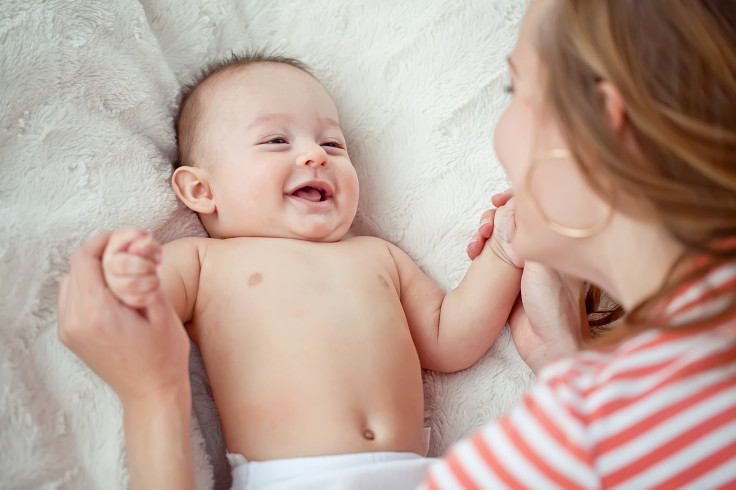While Antibiotics Kill Gut Microbes Used To Develop Premature Babies' Immune System, Scientists Look To A Solution

Whereas some mothers chase grubby kids down with a wet washcloth, others let them live a bit closer to the earth, less obsessed with bacteria count. Regardless of appearances, all mothers transfer microbic germs — neither seen nor heard — to their newborns, which scientists now say helps launch a newly independent immune system.
"At birth, newborns move from a largely sterile environment to one full of microorganisms," study leader Hitesh Deshmukh said in a hospital press release. "Animals and humans adapt to this new situation by ramping up the production of granulocytes within the first days of life."
However, the greater use of antibiotic soaps and household sprays in modern society threatens to stunt the development of the nascent immune system by depriving it of necessary challenges, similar to how vaccine jabs boost future response to disease. Now, neonatologists at The Children’s Hospital of Philadelphia say a new animal study further highlights the importance microbes play in the rapid production of white blood cells called granulocytes, which are important for fighting infections.
G. Scott Worthen, a neonatologist on the study, says the experiment suggests that exposure to the maternal microbes initiates the newborn’s immunological response. A neonatal surge in white blood cells was hampered when researchers exposed the mother mice to antibiotics before pregnancy and afterward while nursing. As a result, neonatal mice faced a greater risk from deadly sepsis caused by E. coli K1 — an effect worsened for mice born prematurely.
Deshmukh and his colleagues reported in Nature Medicine on Sunday that signaling mechanisms employed by microorganisms within the gastrointestinal tract regulate the production of white blood cells in those baby mice. Naturally, they found that exposing both mother and newborn mouse to antibiotics lowered the variety of bacteria in the gut, hampering the immune system.
But the researchers found they were able to treat the condition by later exposing the neonatal mice to gut microbes, which improved the immune response to E. coli in a procedure known as a “fecal transplant” when performed on humans. Although researchers say they ultimately hope to decrease our use of antibiotics, such fecal transplants remain inappropriate for human newborns — as doctors often cannot reliably determine the source of a newborn infection.
Yet further study may possibly support the idea of following an antibiotic regimen for newborns with a fecal transplant as a one-two punch against E. coli and other bacterial infections.
Source: The microbiota regulates neutrophil homeostasis and host resistance to Escherichia coli K1 sepsis in neonatal mice. Nature Medicine. 2014.
Published by Medicaldaily.com



























